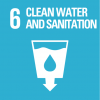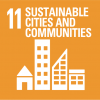The new wastewater treatment plant of Soria will have a peak treatment flow of 48,000 m3/day and will cover the needs of approximately 135,000 inhabitants and up to 180,000 in the future. It will also prevent the negative impact of waste discharge and help to preserve vulnerable areas.
The plant will handle pre-treatment: primary decantation and storm water treatment. The latter is designed for 1.7 m3/sec and utilizes a biological process (SBR) for an average flow of 1,000 m3/h, with nutrient removal. At the plant, they will also perform sludge treatment through anaerobic digestion.
This project is part of a larger initiative called ‘Sanitation of Soria: WWTP and emissaries’, declared of general interest by the 28th Additional Provision of Law 26/2009 for the State’s General Budget for 2010.
The full scope of this project involves building an outflow tunnel to connect the existing plant, located in ‘La Rumba’, with the new Sinova wastewater treatment plant (WWTP). All discharges from the city will be collected and transported to the new facility through the new 5-kilometre tunnel. The municipal sewer of ‘Los Rábanos’ will be connected to the discharge tunnel by means of a shaft collector, so that the district's waste water will also be treated in the new WWTP.
- This entire project (the new treatment plant and tunnel) represent an investment of 60.5 million euros, after taxes. As it is, 35% of the total amount is meant to be co-financed by ERDF funds, under Spain's Multiregional Operational Programme (MOP). The remaining 65% percent will be paid by the Soria City Council and the Department of Public Works and Environmental Services from the board of Castilla y León.
- The estimated time of construction is of 24 months for the treatment plant, and 29 months for the tunnel.
- The new infrastructures will ensure compliance with Directive 91/271/EEC for urban wastewater treatment, as wastewater from the urban areas of Soria and ‘Los Rábanos’ will be properly purified.








